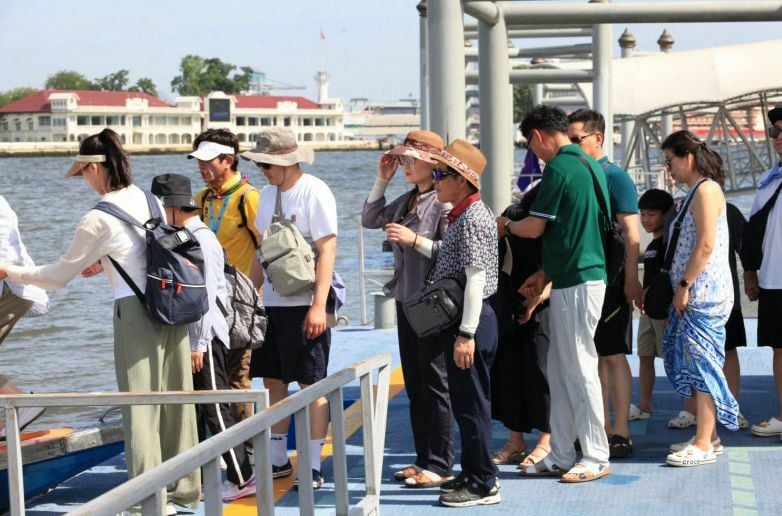Thailand aims for 3.4 trillion baht in tourism revenue by 2025

Thailand’s Tourism Authority (TAT) plans to achieve 7.5% revenue growth or 3.4 trillion baht in 2025, while private operators advocate for airfare subsidies to boost income, to mark the upcoming year as Thailand Grand Tourism Year.
During the TAT Action Plan 2025 meeting yesterday, July 8, Chairman Natthriya Thaweevong announced that the government aims to mark 2025 as the Thailand Grand Tourism Year in a bid to position the tourism industry as the fastest-growing among the eight pillars of the Ignite Thailand scheme.
TAT Governor Thapanee Kiatphaibool projected that Thailand should rank among the top 14 most-visited countries next year, with notable advancements in its sustainable tourism index.
With a modest budget of 6.23 billion baht for 2025, the agency has set a growth target of 5% to 7.5% for tourism revenue, aiming for a maximum of 3.4 trillion baht. The agency’s goals for arrivals include 40 million foreign tourists and 220 million domestic trips next year.
Foreign tourists are expected to spend an average of 57,180 baht per trip, while domestic tourists are forecast to spend at least 4,000 baht per trip.
Thapanee stated that various promotional campaigns and festivals could help second-tier cities increase their revenue by 25%, up from the current 10%.
TAT President Chamnan Srisawat emphasised the importance of the final quarter of this year in boosting tourism expenditure. The goal is to meet state targets of at least 3 trillion baht from 36.7 million foreign arrivals and 200 million domestic trips, which are previous targets.
Chamnan indicated that the new target of 3.5 trillion baht in tourism revenue is attainable but requires aggressive promotions in both domestic and international markets, focusing on high-purchasing-power groups.
For international markets, Chamnan suggests the TAT collaborate with tour operators to offer special airfare packages, with 29 TAT overseas offices partnering with at least 10 tour companies each to launch these packages. Chamnan recognises the potential in the Middle East.
“The market with the greatest potential is the Middle East, particularly targeting the medical and wellness segment.”
The policy to promote 55 second-tier tourism cities aligns with sustainable tourism growth but Chamnan stressed the need for a master plan for supply development, reported Bangkok Post.
“Encourage Joint Commission International-accredited hospital investment in provinces with border checkpoints to grow the medical tourism market, targeting neighbouring countries.”
Latest Thailand News
Follow The Thaiger on Google News:


























